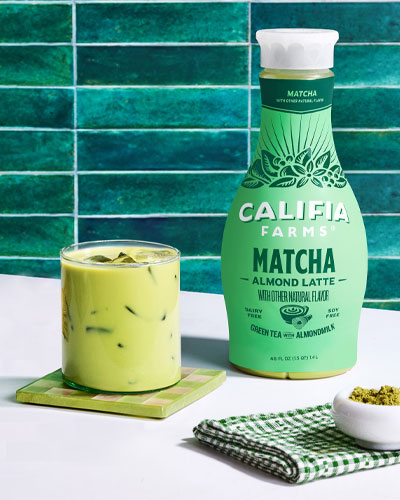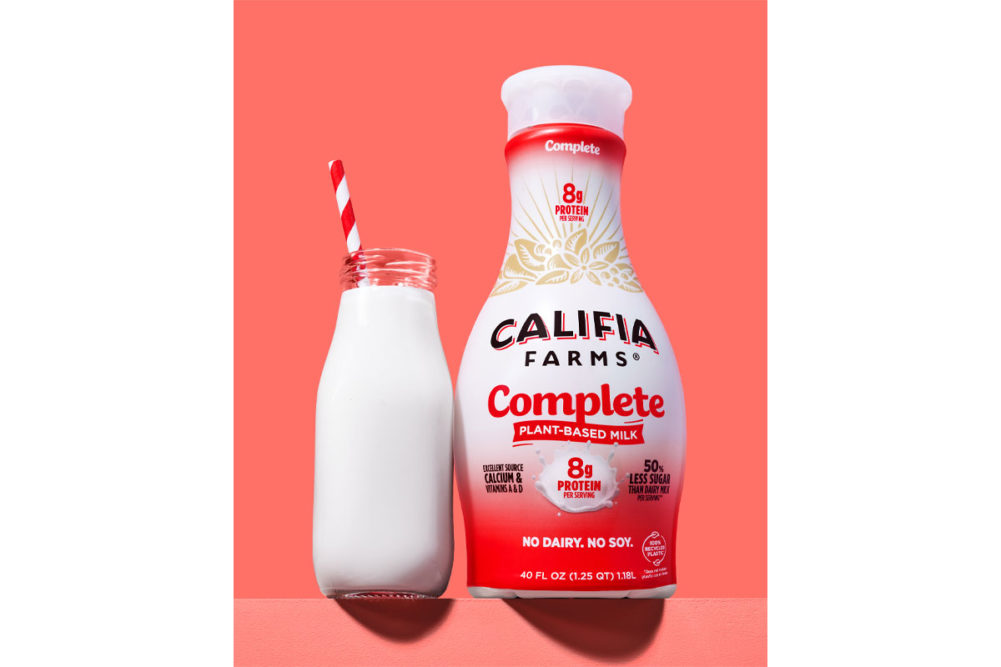LOS ANGELES – Dave Ritterbush, chief executive officer of Califia Farms, doesn’t think “alternative” is an appropriate descriptor for plant-based milks. With the product category achieving 50% household penetration in the United States, he said it’s time to recognize the category as mainstream.
“Plant-based milks aren’t alternative anymore,” he said in an interview with Food Business News. “We are just seeing more and more households buying in. The average consumer used to be defined as urban, younger and more educated, but it’s now spread well beyond that group. We see market penetration across all 50 states. Yes, there is more development on the coasts of the United States, but, really, it’s mainstream.”
The growing household penetration of plant-based milks has allowed Califia Farms to grow at a compound annual growth rate of approximately 21% over the past five years, Ritterbush said.
“Basically, we’ve been doubling the size of our company every 3.5 years,” he said.
That growth has come from the company’s foundational almond milk and oat milk products as well as expansion into coffee creamers, coffee and tea as well as heavy whip, plant-based half and half products and, most recently its complete protein plant-based beverage.
 Dave Ritterbush, CEO of Califia Farms. Photo: Califia Farms
Dave Ritterbush, CEO of Califia Farms. Photo: Califia FarmsRitterbush called 2024 one of Califia Farms’ most exciting years when it comes to innovation.
“Previously, we were all trying to keep up with a changing supply chain, get through COVID and now things have settled down and we’ve been able to put our innovation chops together,” he said.
In February the company introduced Califia Farms Complete, a plant-based beverage featuring a blend of pea, chickpea and fava bean protein to make it a complete protein offering.
“As a growth platform, you are going to see us do more with functionality,” Ritterbush said. “For example, with Complete, it literally matches up nutrient for nutrient with dairy milk, but with less fat, less sugar and less calories.”
The company also has extended its presence in coffee with the introduction of a ready-to-drink matcha almond tea latte formulated with matcha green tea powder and Califia’s almond milk.
“We just expanded into teas with our first matcha tea latte that has been received incredibly well,” Ritterbush said. “We think about our platforms as delivering plant-based milks across a range of occasions and functionality. So, we look at our creamer and coffee business as bringing a café experience to consumers at home.”
Califia Farms has been working to capitalize on more consumers drinking coffee at home following the pandemic with the expansion of its coffee creamer line that includes almond and oat varieties.
 Califia Farms expanded into teas with the introduction of its matcha almond tea latte. Photo: Califia Farms
Califia Farms expanded into teas with the introduction of its matcha almond tea latte. Photo: Califia Farms“The creamer category has almost doubled since pre-pandemic,” Ritterbush said. “What’s changed is two big macro trends.
“One is consumers have invested in the last several years in coffee making equipment at home. Then the second big trend that merged with that is customization. People are looking to take coffee, which is quite a simple beverage, and now they are making quite elaborate creations at home.”
The company also is growing its presence in coffeehouses with its Barista Blend plant-based products. Ritterbush said the company is targeting “third wave” coffee shops.
“What we offer is a level of quality and brand recognition that many foodservice operators want to leverage, and many consumers want to buy because of the trust mark Califia provides,” he said. “So, our core focus is places that are dedicated to high quality coffee experiences.”
Ritterbush did not rule out Califia Farms innovating in new categories but added such growth isn’t required.
“When we look at the total of the available market there are still enormous growth opportunities to double or triple the size of the company without venturing into other technical categories,” he said.





